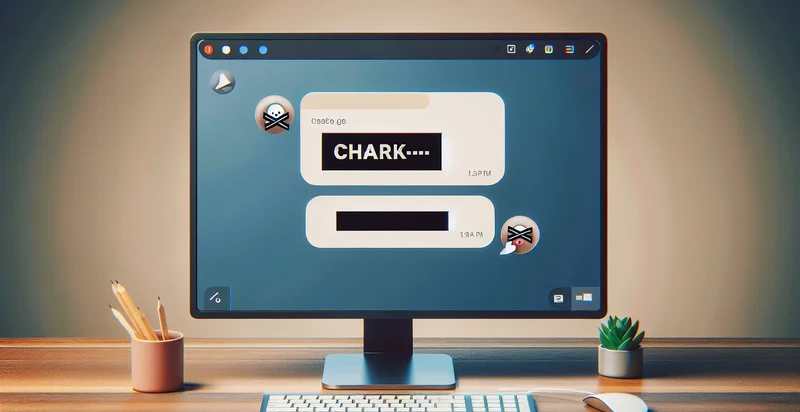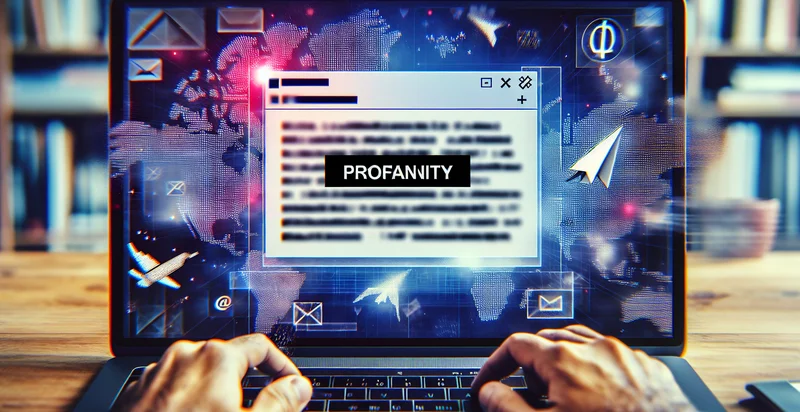Identify if slack message contains a profanity
using AI
Below is a free classifier to identify if slack message contains a profanity. Just input your text, and our AI will predict if the message contains profanity - in just seconds.

Contact us for API access
Or, use Nyckel to build highly-accurate custom classifiers in just minutes. No PhD required.
Get started
import nyckel
credentials = nyckel.Credentials("YOUR_CLIENT_ID", "YOUR_CLIENT_SECRET")
nyckel.invoke("if-slack-message-contains-a-profanity", "your_text_here", credentials)
fetch('https://www.nyckel.com/v1/functions/if-slack-message-contains-a-profanity/invoke', {
method: 'POST',
headers: {
'Authorization': 'Bearer ' + 'YOUR_BEARER_TOKEN',
'Content-Type': 'application/json',
},
body: JSON.stringify(
{"data": "your_text_here"}
)
})
.then(response => response.json())
.then(data => console.log(data));
curl -X POST \
-H "Content-Type: application/json" \
-H "Authorization: Bearer YOUR_BEARER_TOKEN" \
-d '{"data": "your_text_here"}' \
https://www.nyckel.com/v1/functions/if-slack-message-contains-a-profanity/invoke
How this classifier works
To start, input the text that you'd like analyzed. Our AI tool will then predict if the message contains profanity.
This pretrained text model uses a Nyckel-created dataset and has 2 labels, including Clean and Contains Profanity.
We'll also show a confidence score (the higher the number, the more confident the AI model is around if the message contains profanity).
Whether you're just curious or building if slack message contains a profanity detection into your application, we hope our classifier proves helpful.
Related Classifiers
Need to identify if slack message contains a profanity at scale?
Get API or Zapier access to this classifier for free. It's perfect for:
- Workplace Conduct Monitoring: Implementing a profanity identifier in Slack can help organizations monitor workplace communication for inappropriate language. This can assist in maintaining a respectful and professional environment, ultimately improving employee morale and workplace culture.
- Compliance and Legal Assurance: Businesses in regulated industries can use a profanity filter to ensure compliance with communication standards and legal requirements. Monitoring for offensive language can reduce the risk of litigation related to harassment or hostile work environments.
- Automated Reporting: The profanity identifier can facilitate automated reporting for HR teams by flagging messages that contain inappropriate language. This allows communication issues to be addressed swiftly, ensuring that incidents are documented and investigated in a timely manner.
- Employee Training and Development: By analyzing flagged messages, organizations can identify patterns of offensive language and provide targeted training for their employees. This can help foster a culture of respect and educate staff on appropriate communication practices.
- Improved Customer Support: In customer service channels, a profanity identifier can alert support teams to instances where customers may be using offensive language. This can help staff respond more effectively and create a calmer communication environment, leading to better customer experiences.
- Conflict Resolution: Identifying messages that contain profanities can aid in early detection of conflicts among team members. By analyzing the context and frequency of such messages, management can intervene proactively to resolve issues before they escalate.
- Data Analysis and Insights: The use of a profanity identifier can provide valuable insights into team dynamics and communication styles. By aggregating data on the frequency and context of profanity use, organizations can make informed decisions about team culture and employee engagement initiatives.


